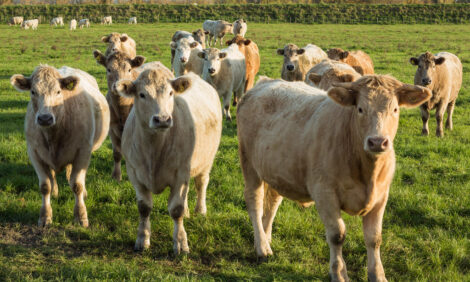



New Generation of Progress Brewing in Farm GHG Management
CANADA - Canadian farmers are seeing some significant new advances in understanding, measuring and managing greenhouse gas (GHG) emissions. These will help anchor environmentally sustainable industry practices and generate more efficient and effective production options.According to Meristem Land&Science, scientists on the frontlines of this new research say the factors driving these developments are the same ones behind a lot of the progress in sustainable farming systems today. Food marketing is a leading one as brands want to include information on carbon footprint. Demands for sustainable farming systems are another force.
Around the world, the search is on for the most effective ways to measure GHG emissions driven by new interest and capabilities in farm systems modeling. Canada's efforts are centered around a GHG modeling program called Holos.
Holos is simple but sophisticated, a state-of-the-art tool usable by everyone from producers to researchers to industry decision-makers, says Roland Kroebel, an agro-systems modeler at Agriculture and Agri-Food Canada (AAFC) Lethbridge, Alberta.
"The goal is also to be able to give farmers the best available Canadian data to calculate carbon footprints to choose strategies to improve that footprint. Farmers want to be able to demonstrate they have a sustainable production system. In the longer run we would like to incorporate environmental impact estimates by looking beyond nitrogen surpluses to also include phosphorus, water quality and biodiversity issues."
One source of new data for the Holos tool and related discussions comes from significant progress on the livestock front. Livestock production, particularly with ruminants, is identified as a GHG contributor and there is pressure to find ways to reduce the livestock GHG footprint. Now Canada has taken a major step forward to meet this challenge with a broad science effort that includes a life cycle assessment of GHG emissions from dairy and beef production.
Conducted by AAFC using Holos, these studies take a comprehensive account of GHG emissions throughout the whole life of cattle. The result is some of the most sophisticated analysis of its kind completed to date anywhere.
"These life cycle assessments provide us with a baseline model of GHG emissions from beef and dairy farms in Canada, along with a greater in-depth perspective on the efficiency and environmental impact of production as it relates to those emissions," said Dr Karen Beauchemin of AAFC Lethbridge, a lead researcher in the effort.
"This gives us a clear idea of where we are today. It will help us develop strategies that can help minimize emissions while protecting the high production levels required to meet the demands of feeding a growing world."
A series of articles highlighting the science and progress related to Holos, GHGs and farming is now available in a Special Science Report featured on the Meristem Land and Science website, www.meristem.com. The site delivers regular coverage of new innovations and developments that are driving progress in sustainability.
TheCattleSite News Desk


